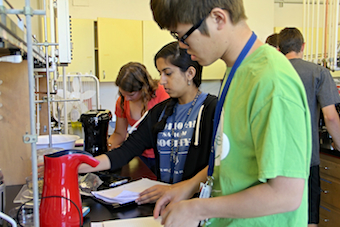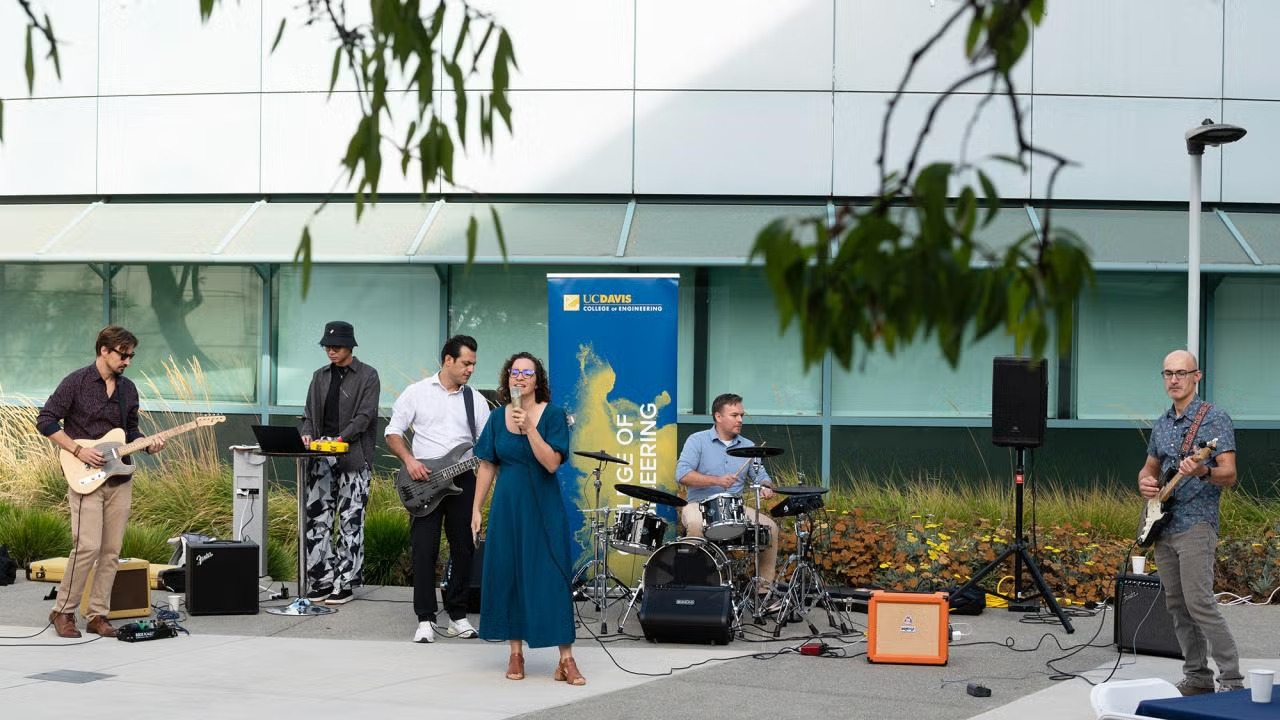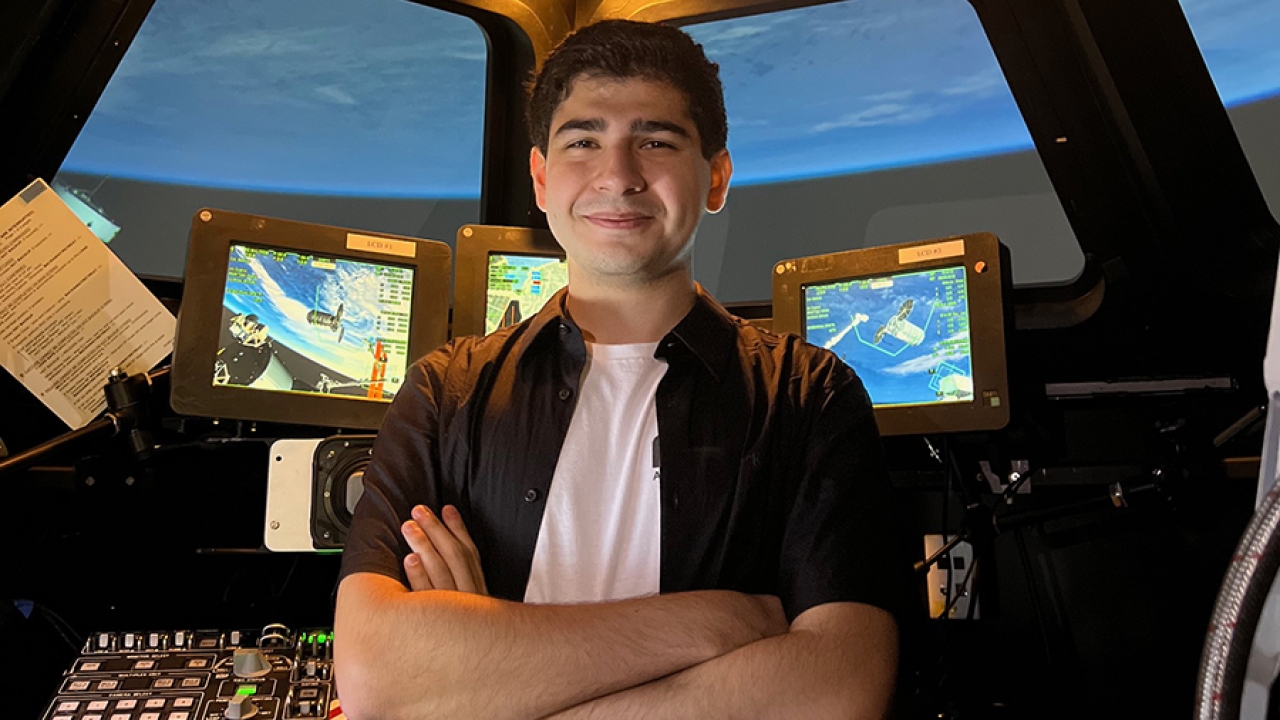Coffee-brewing class teaches engineering skills
DAVIS, CALIFORNIA, November 3, 2013—Following its successful debut as a freshman seminar course in the 2013 spring quarter, instructors William Ristenpart and Tonya Kuhl are expanding ECM 1 — “The Design of Coffee” — into an undergraduate general-ed course for Winter Quarter 2014.
Ristenpart and Kuhl’s so-called “coffee lab” was envisioned as a gentle introduction to chemical engineering, a field of study that until recently offered little in the way of lower-division courses. At a time when outreach has been recognized as a crucial weapon in the effort to attract students to STEM fields, Ristenpart felt that ECM 1 would taste just right.
As it happens, coffee is a perfect entry point. Brewing may seem like a simple process, but when designed from scratch, coffee involves numerous chemical reactions, issues of heat transfer and energy, colloid science, and issues of mass transfer (how chemicals get from one place to another). Students can be introduced, in a friendly fashion, to complicated topics that they’ll then study more rigorously in upper-division classes.
Ristenpart and Kuhl designed their course quite shrewdly, by matching successive laboratory goals with the various steps involved in brewing. A segment on chemical reactions, for example, focuses on roasting coffee beans to perfection; mass transfer demonstrates how extraction is the heart of coffee; and thermodynamics is introduced by discussing espresso, decaf and “the beauty of phase diagrams.”
 The Joe and Essie Smith Endowed Chair of Chemical Engineering at the UC Davis Department of Chemical Engineering and Materials Science, Ristenpart is also a member of the Food Science Graduate Group. His research team investigates the physical, chemical and biological phenomena of fluids, including fluid motion caused by electrical fields, how different food metabolites affect red blood cells, and the behavior of fluids at the microminiaturized scale. In the spring of 2011, he won a five-year $420,000 CAREER Award from the National Science Foundation, to support his work on the electrical charges of fluid droplets.
The Joe and Essie Smith Endowed Chair of Chemical Engineering at the UC Davis Department of Chemical Engineering and Materials Science, Ristenpart is also a member of the Food Science Graduate Group. His research team investigates the physical, chemical and biological phenomena of fluids, including fluid motion caused by electrical fields, how different food metabolites affect red blood cells, and the behavior of fluids at the microminiaturized scale. In the spring of 2011, he won a five-year $420,000 CAREER Award from the National Science Foundation, to support his work on the electrical charges of fluid droplets.
Kuhl has dual appointments in the UC Davis Department of Chemical Engineering and Materials Science, and the Department of Biomedical Engineering. Her research group studies the intermolecular and intersurface forces in complex fluid systems, and seeks connections to such materials’ biocompatible and biodegradable properties. In 1998, she won the Presidential Early Career Award for Scientists and Engineers, which recognizes emerging professors who’ve already distinguished themselves in teaching, research and public service.
Enrollment in ECM 1 will be limited to 300 students. Click here for more information, including registration information, syllabus and FAQs.




